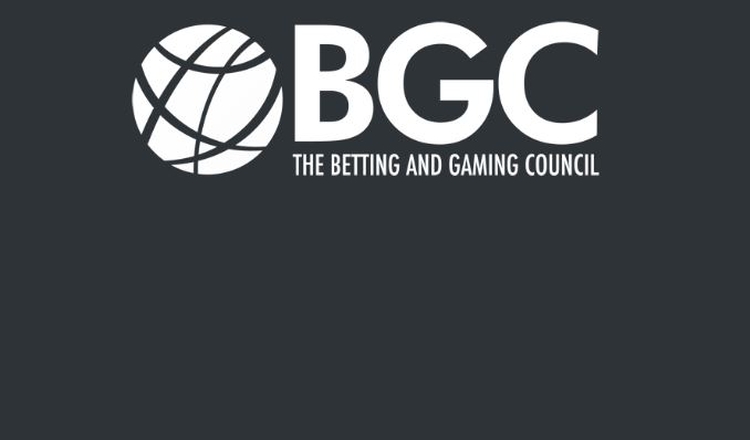The Betting and Gaming Council (BGC) of the United Kingdom has openly praised and voiced its full support for the Government’s new whitepaper surrounding gambling in the country. Michael Gove was set to unveil the Levelling Up scheme on Wednesday, February 2, and it is set to transform the UK by introducing more opportunities and prosperity to all corners. Within it, there are twelve bold national levelling up missions to achieve, which will help to shift the focus of the government to the various forgotten communities across Britain.
The BGC, which represents betting shops, casinos and also the online gambling scene in the UK, said that the framework involved in the whitepaper, which aims to boost jobs by pledging to spend £20 million every year on training and development, is “a fantastic opportunity”. Speaking on the organisation’s behalf, Chief Executive Michael Dugher spoke of the ability to “create more apprenticeships and tackle unemployment across the UK” via the new legislation. He went on to say that the regulated gaming industry was also ready to go beyond that to help the country’s economy.
“Across the UK, from Stoke to Leeds, BGC members are investing in high tech jobs within their companies more than ever before”, he continued. “They stand ready to support the economic recovery after COVID and provide the skills and opportunities that towns and cities need to thrive”.
BGC Makes September Pledge for Creation of Apprenticeships
 In September of 2021, members of the BGC pledged to create 5,000 new apprenticeships aimed at younger people who are looking to work within the industry between now and 2025. The vast majority of the opportunities created through these apprenticeships will be outside of the capital city.
In September of 2021, members of the BGC pledged to create 5,000 new apprenticeships aimed at younger people who are looking to work within the industry between now and 2025. The vast majority of the opportunities created through these apprenticeships will be outside of the capital city.
That apprenticeship plan has now been backed by the Engagement Director for the Levelling Up Goals at The Purpose Coalition, Lord Walney. He spoke of them operating as “a huge part in the levelling up process”, giving the companies the ability to provide excellent training for a large number of younger people in the UK.
Within the Levelling Up scheme, a number of policies have been outlined that are set to be achieved by 2030. Those targeted policies include, alongside others:
- Pay, employment and productivity will have risen in every area of the UK, with each containing a globally competitive city, with the gap between the top performing and other areas closing.
- Local public transport connectivity across the country will be significantly closer to the standards of London, with improved service, simpler fares and integrated ticketing.
- The number of people successfully completing high-quality skills training will have significantly increased in every area of the UK. In England, this will lead to 200,000 more people successfully completing high-quality skills training annually, driven by 80,000 more people completing courses in the lowest skilled areas.
- Pride in place, such as people’s satisfaction with their town centre and engagement in local culture and community, will have risen in every area of the UK, with the gap between the top performing and other areas closing.
- Every part of England that wants one will have a devolution deal with powers at or approaching the highest level of devolution and a simplified, long-term funding settlement.
A study conducted by ESA Retail discovered that high street betting shops provide a boost to their respective areas. According to data, 89% of customers visiting betting shops combine their outing with visits to other local businesses. At the same time, around 11,600 people are employed in the country’s 120 casinos, which pay around £600 million in tax to the Treasury, and contribute £1.2 billion to the economy.
BGC Trialling New Gambling Harm Scheme via GAMSTOP
 It’s not the only reason that the BGC has been in the news lately, either. Following a two-year delay, the organisation’s Single Customer View scheme, which aims to share data on those people who are most at risk of gambling harm, is set to be trialled via GAMSTOP. Serving as the country’s self-exclusion organisation, GAMSTOP will put the scheme to use to try and identify those players who are at risk of harm and ensure that they are protected across all licensed companies.
It’s not the only reason that the BGC has been in the news lately, either. Following a two-year delay, the organisation’s Single Customer View scheme, which aims to share data on those people who are most at risk of gambling harm, is set to be trialled via GAMSTOP. Serving as the country’s self-exclusion organisation, GAMSTOP will put the scheme to use to try and identify those players who are at risk of harm and ensure that they are protected across all licensed companies.
Anyone identified via the Single Customer View scheme will be prevented from simply moving across to an alternate operator without appropriate interventions taking place. That could mean extra safeguards being put into place for certain gambling customers. Others may simply end up being blocked from betting completely via other operators, according to the information released by the BGC.
Using this approach to the scheme also ensures that BGC members are not infringing on personal information of the large number of people who gamble responsibly and safely. Naturally, these people would not want their data sharing around in a national database.
And it is for that reason that the trial of the scheme has been delayed for almost two years. The UK Gambling Commission released a statement in October 2021 regarding the progress that had been made on the Single Customer View. It was noted that due to data sharing concerns raised by the Information Commissioner’s Office (ICO), various parts of the scheme had to be altered. It is hoped that the system will be ready to trial by the end of March this year.
Over a million pounds are being invested in the trial by BGC members, allowing for speedy and proactive intervention to take place. It comes as recent data suggests that registrations with GAMSTOP are skyrocketing, thanks to the effects of restrictions and lockdowns changing how people behave when at home for longer periods of time. GAMSTOP was launched a few years ago by the Gambling Commission, after it realised that gambling was turning into a heavily mainstream form of entertainment. It was therefore predicted that more gambling addictions would be experienced in the UK, and all licensed gambling operators in the UK are required to be subscribed to the GAMSTOP scheme.
Towards the end of 2021, it was reported that more than 250,000 people had elected to self-exclude from online gambling. Yet it saw a spike in registrations last year when compared with previous years, too. Around 67,000 people had signed up to the GAMSTOP scheme, compared to 51,000 in 2020. And the sharpest ever rise in women seeking help for addiction was witnessed midway through 2021, too. Perhaps the sooner the new Single Customer View trial is enacted, the better things will be.

